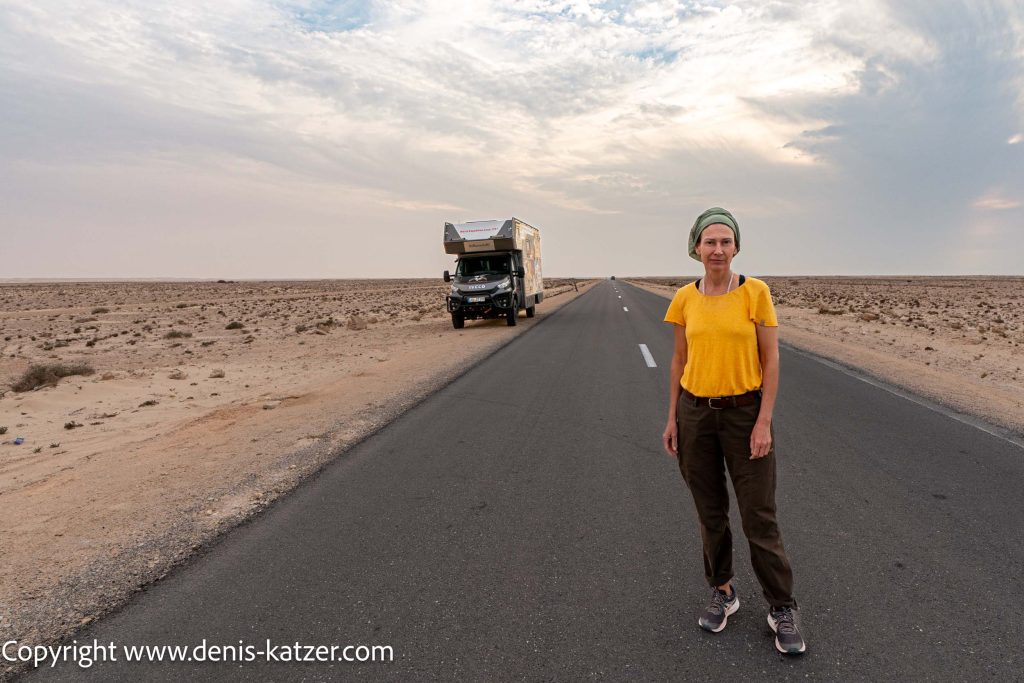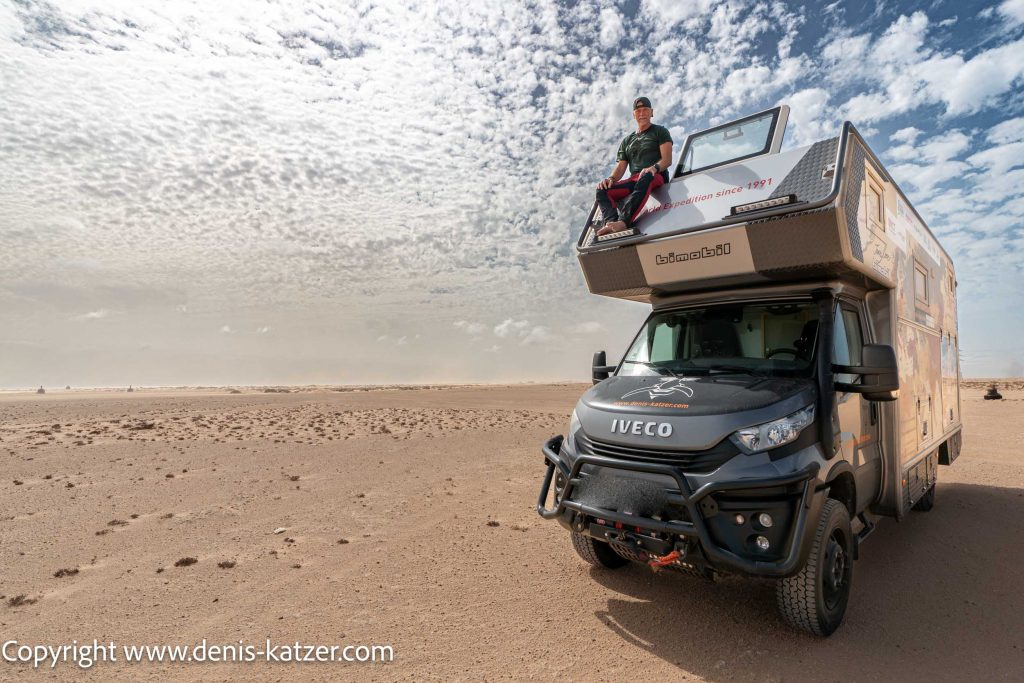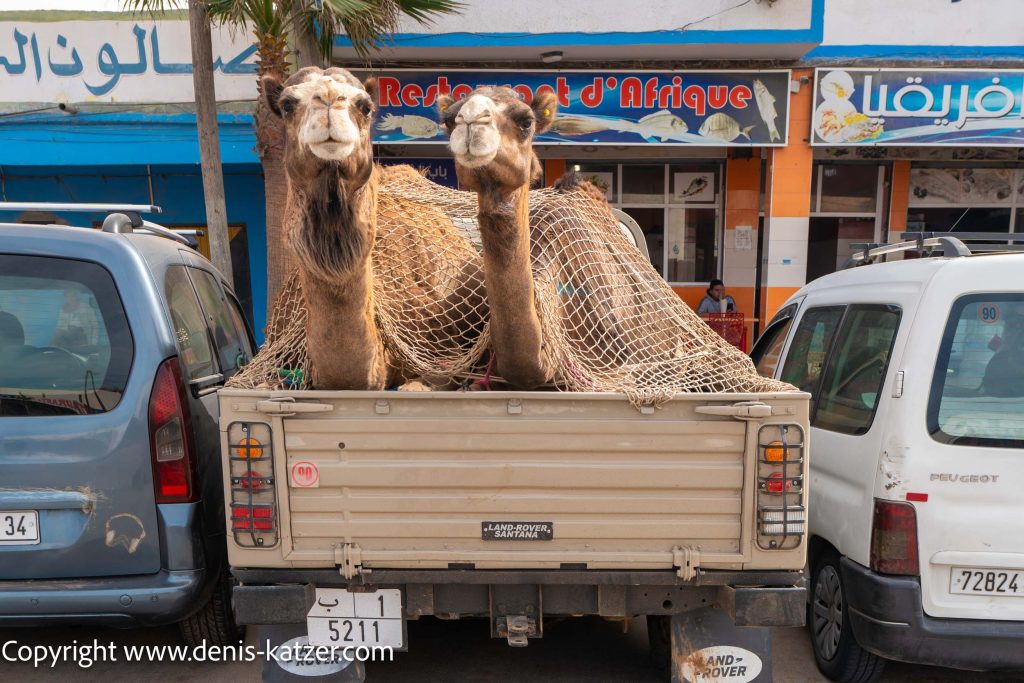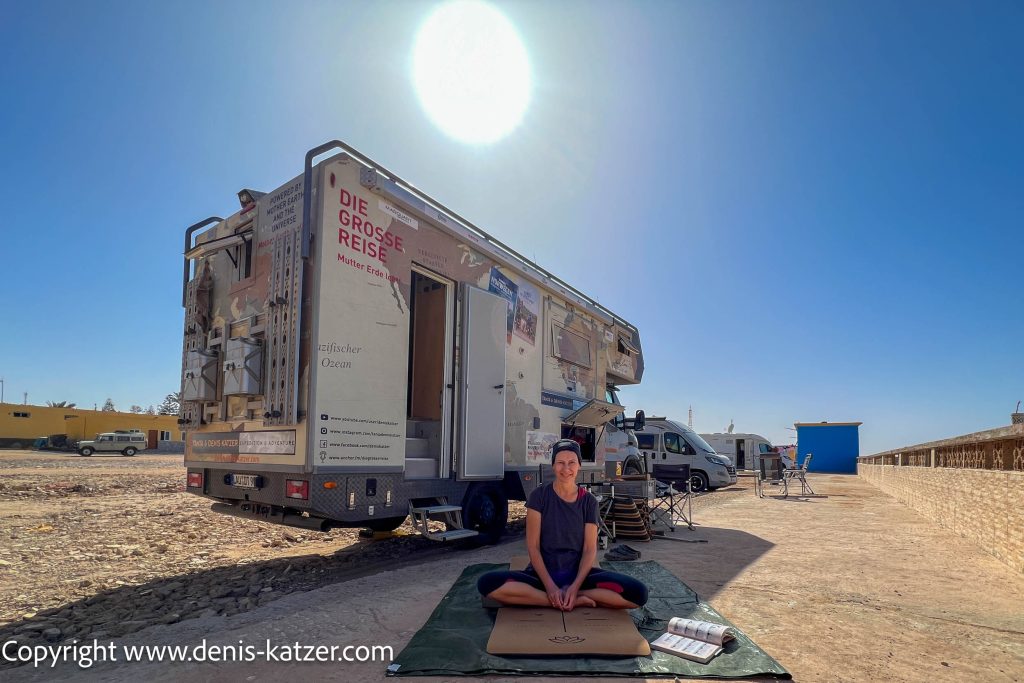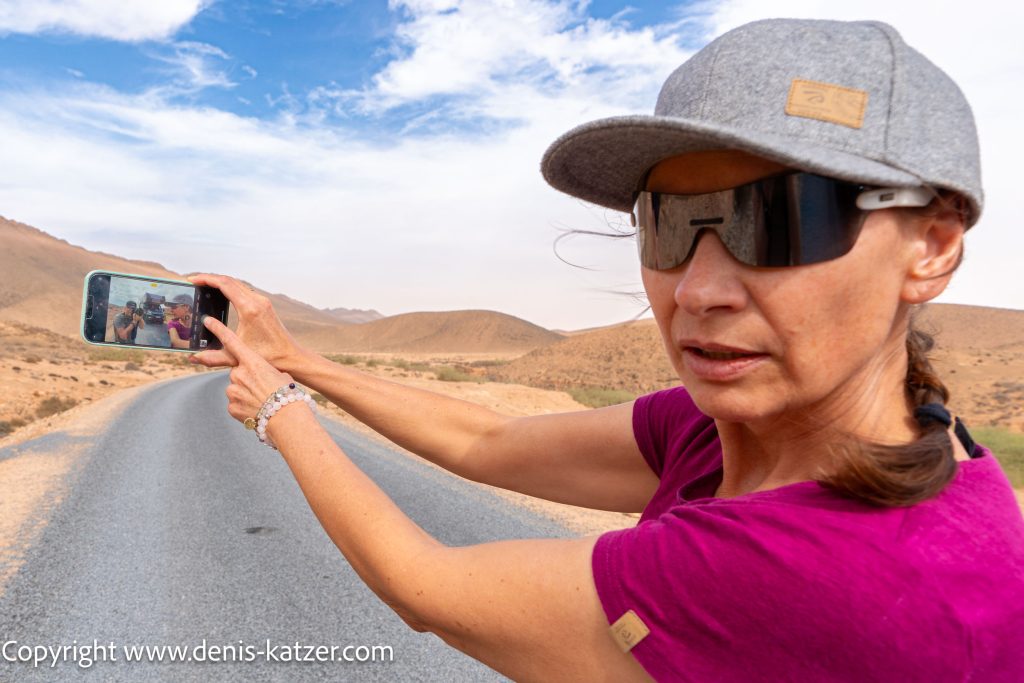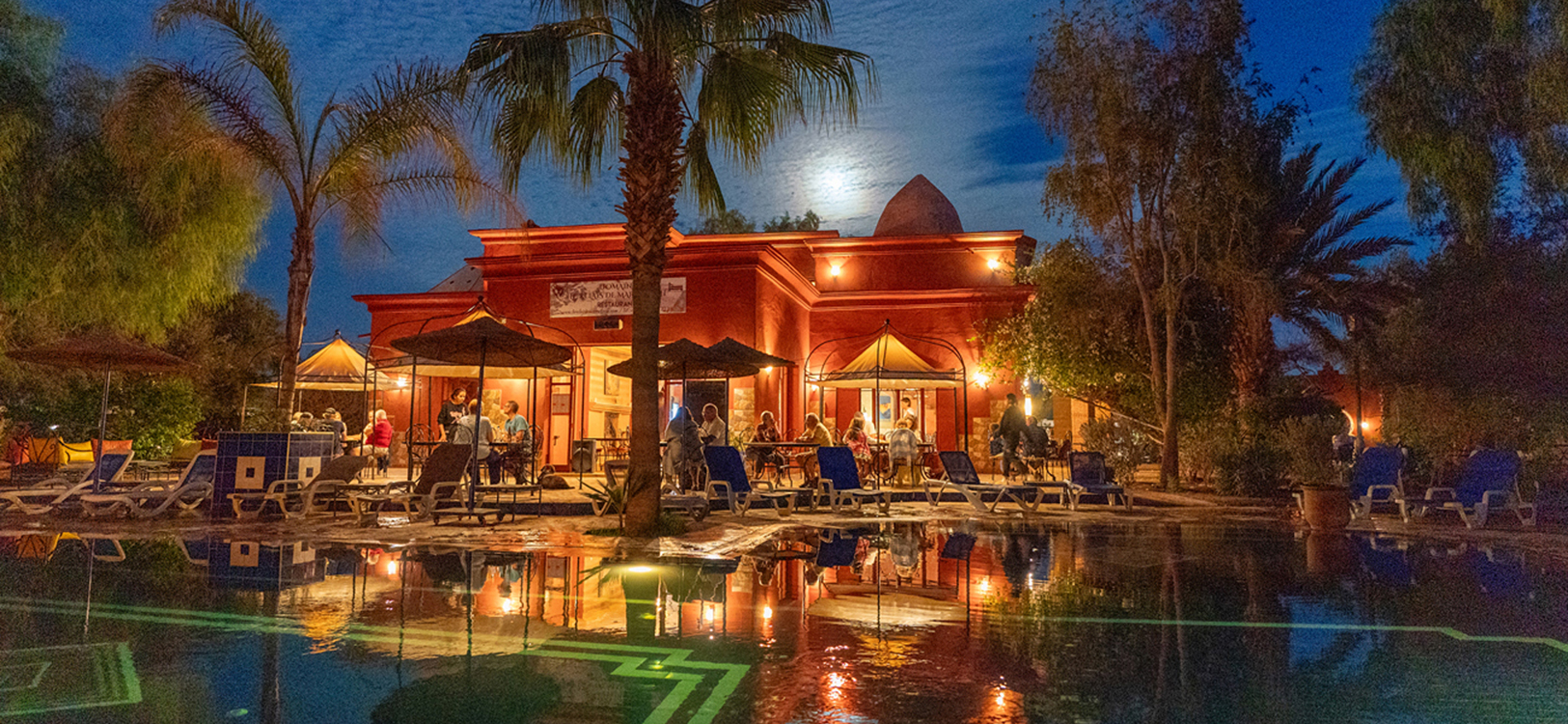
Living in a motorhome dream or nightmare?
N 28°29'42.7" W 011°20'13.0"
Day: 01/25/2024
Day: 419
Camp 75
Country: Morocco
Place: Camping Atlantique
Latitude N: 28°29’42.7″
Longitude W: 011°20’13.0″
Daily kilometers: 321 km
Total kilometers: 11,464 km
Height: 5 meters
Temperature day max: 26°
Night temperature: 15 °
Departure: 9:00 am
Arrival: 17:30
Travel time: 8:30 hrs.
We start the beautiful morning with a walk along the Atlantic Ocean. The seagulls greet us, screeching and flying over the breaking waves, always on the lookout for fresh fish. As the first rays of sunshine penetrate the pink clouds, we return to our Terra Love. “Before we leave, I want to clean our drinking water system,” I say, energized by the fresh morning air, and get straight down to the important work. Our motorhome has a 270-liter fresh water tank, which lasts us a good three weeks if we use it sparingly, provided we don’t use the water for showering but clean ourselves with washcloths – especially when we live in the desert, where every drop is worth its weight in gold.
We generate our drinking water, which also comes from the 270-liter fresh water tank, by pumping it through a ceramic and activated carbon filter when a separate tap is opened. For us, this is a simple and ingenious solution for getting clean drinking water. This filter system has proven itself over the last five years. I used it successfully decades ago on my earlier expeditions to indigenous peoples in the Amazon basin and in western New Guinea.
“Look at that, the ceramic filter has a hairline crack,” I say to Tanja, startled, and show her the fine, barely visible line after I have unscrewed the filter from the system. “How can that happen?” wonders Tanja. “I wish I knew,” I reply. “Although, the last time I cleaned the filter a few months ago, the ceramic filter slipped out of my hand and fell to the floor. Only very slightly, but maybe that was the reason,” I think aloud. “Luckily we have a replacement filter with us,” I say with relief and screw the new ceramic filter into its holder.
An hour later, we leave the beautiful pitch on the secluded beach of Laayoune behind us and drive towards the sun. “Watch out, speed breakers!”, Tanja warns me, because you can barely see the bumps running across the road in the sunlight. On our journey through Morocco, we have to pay particular attention to the so-called traffic calming measures, which are actually intended to increase the safety of all road users, especially pedestrians and cyclists. These speed breakers sometimes appear quite unexpectedly, often before a traffic circle, an intersection, at town entrances, roadworks and sometimes completely out of the blue. If such an elevation is overlooked, it can be very dangerous for the driver. Some of these speed breakers are so extreme that they can destroy a vehicle’s shock absorbers and even the axles, especially if you overlook the sometimes extreme bumps or brake abruptly to avoid major damage to the chassis. Rear-end collisions and loss of control occur again and again at such points.
We reach the town of Laayoune, also known as El Aaiún, which seems like a green oasis after a long time in the Western Sahara, or to put it politically correctly, in the Moroccan Sahara.
It is the capital of the region and is located around 25 kilometers from the Atlantic coast in an arid desert landscape.
The city stretches along the Saguia el Hamra, a dry river that rises in the stone desert to the east and is stopped by sand barriers to the north of the city. The Saguia el Hamra valley is home to the only large freshwater lake in the country, which forms at the end of the rainy season in the fall. To the west and north of the city are sand dunes, which are often blown up by strong summer winds. The city of Laayoune is home to a diverse population consisting of different ethnic groups, including Sahrawis, Moroccans and a growing number of immigrants from other parts of Morocco.
Today is our last day on the 1,200-kilometer route between the border of Mauritania and the city of Tan-Tan, which we have already covered on the journey to Mauritania and now back again. We therefore enjoy the solitude and bizarreness of this stretch of desert once again before we return to populated areas.
During our long desert trips, we like to find opportunities to think about a wide variety of topics. One thing that stands out in particular is the concept of permanent traveling and living in a motorhome. This model of life fascinates many of our viewers, as it embodies freedom, adventure and the renunciation of entrenched structures. For some, it’s the ultimate dream, prompting them to save up or even sell their home to make it happen.
However, the idea of leaving home to travel the world raises many questions. Is it possible to sever ties with home and discover a new world at the same time? How does it affect our identity and our relationships when we live together in a confined space? The idea of living in a motorhome may seem romantic, but it also poses practical challenges. How do you deal with limited space and resources? How do you cope with the ups and downs that come with a nomadic lifestyle?
Another important topic is homesickness. Even though traveling in a motorhome offers many exciting possibilities, there can also be moments of longing for familiarity and security. How do you deal with being far away from home and longing for family, friends or simply familiar places?
We are very interested in your thoughts and experiences on these questions. Have you ever thought about giving up your home to live in a motorhome? Have you already had experience of living in a confined space? And how do you deal with homesickness when you’re on the road? Your insights and experiences are inspiring for our community and can help us make important decisions and gain new perspectives. We look forward to reading about you in the guestbook on our website and exchanging ideas with you. Here is the link: Guestbook Denis Katzer.
Here is the link to the video:
